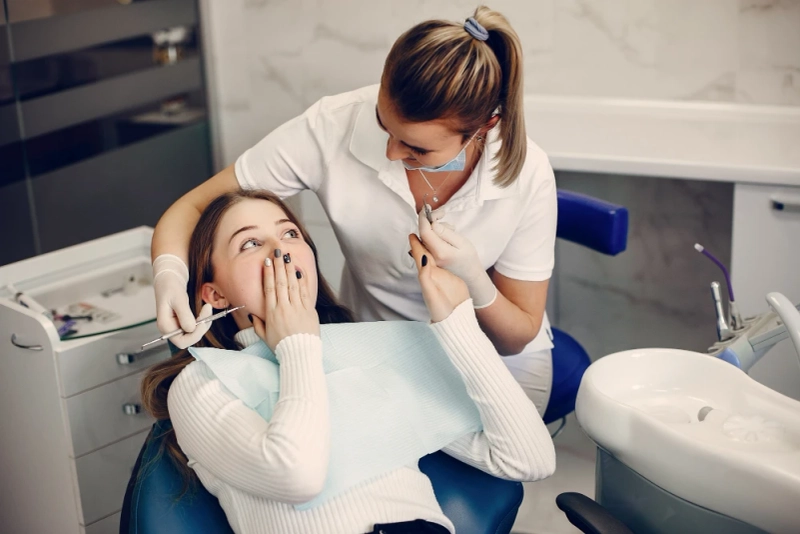Many people experience anxiety when it comes to visiting the dentist. This fear, known as dental anxiety, can range from mild uneasiness to severe phobia. It can be triggered by various factors, including fear of pain, past traumatic dental experiences, or feeling of loss of control. Whatever the cause, dental anxiety should not prevent you from seeking essential dental care. Understanding the root of your anxiety and exploring strategies to manage it can help you overcome your fear and maintain good oral health.
Understanding Dental Anxiety:
Dental anxiety is more common than you might think. Studies suggest that up to 75% of adults in the United States experience some degree of dental fear, with 5-10% experiencing dental phobia, an intense fear that can lead to avoidance of dental care altogether. Dental anxiety can manifest in physical symptoms such as sweating, increased heart rate, or even panic attacks. It can also have serious consequences for your oral health, as avoiding the dentist can lead to untreated dental issues, which can worsen over time.
Several factors can contribute to dental anxiety:
Fear of Pain: The fear of experiencing pain during dental procedures is one of the most common causes of dental anxiety. However, advancements in dentistry have made dental procedures more comfortable than ever before. Dentists can use local anesthesia to numb the area being treated, ensuring that you do not feel pain during the procedure.
Negative Past Experiences: A traumatic or painful experience at the dentist in the past can create a lasting fear of dental visits. It's essential to communicate any past negative experiences with your dentist so they can take steps to make you feel more comfortable.
Feeling of Helplessness or Loss of Control: Some people feel anxious about not being able to see what's happening during a dental procedure or feeling like they have no control over the situation. Dentists can help alleviate this fear by explaining the procedure beforehand and allowing you to ask questions or take breaks during treatment.
Embarrassment: If you're self-conscious about the condition of your teeth or ashamed of your dental hygiene habits, you may feel embarrassed to see a dentist. “It's important to remember that dentists are professionals who are there to help you improve your oral health, not to judge you,” says dentist Shepparton in their latest blog.
Fear of Judgment: Some people worry about being judged by their dentist for their oral health habits or the condition of their teeth. Dentists are trained to provide care without judgment and are focused on helping you achieve optimal oral health.
Managing Dental Anxiety:
If you experience dental anxiety, there are several strategies you can use to help manage it:
Communicate with Your Dentist: Let your dentist know about your anxiety before your appointment. They can explain the procedures, address your concerns, and work with you to create a plan that makes you feel more comfortable.
Use Relaxation Techniques: Techniques such as deep breathing, meditation, or listening to calming music can help reduce anxiety before and during your dental appointment.
Bring a Support Person: Having a friend or family member accompany you to your appointment can provide emotional support and make you feel more at ease.
Consider Sedation Dentistry: For those with severe dental anxiety, sedation dentistry can be an option. This involves using medication to help you relax during dental procedures.
Practice Good Oral Hygiene: Maintaining good oral hygiene can help reduce the need for invasive dental procedures, which can in turn reduce anxiety about visiting the dentist.
Conclusion:
Dental anxiety is a common issue that can prevent people from seeking essential dental care. However, with the right strategies and support, it is possible to overcome dental fear and maintain good oral health. By communicating openly with your dentist, using relaxation techniques, and seeking support from friends or family, you can take control of your dental anxiety and ensure that fear does not keep you from the dentist chair. Remember, your dentist is there to help you, and together, you can work towards achieving a healthy, beautiful smile.


